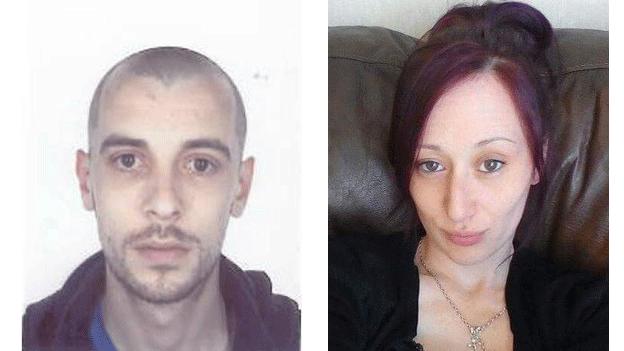M9 crash: 'Weaknesses' in new police call-handling system
- Published
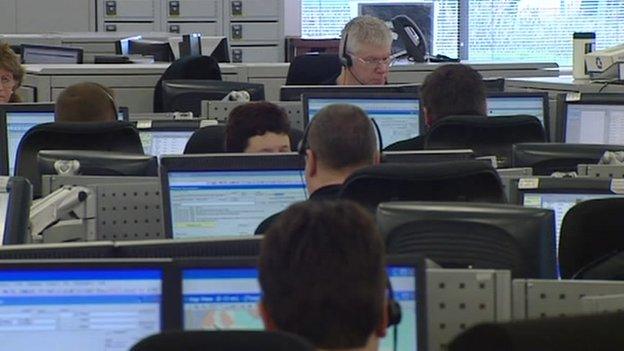
The report said no further control rooms should close in the near future
Weaknesses in Police Scotland's roll-out of its new national call-handling system have been highlighted in an Inspector of Constabulary report.
Derek Penman said the oversight of the project was inadequate and made 30 recommendations, external.
Justice Secretary Michael Matheson said the report included some "hard messages" for the force and pledged the recommendations would be implemented.
The report followed the M9 crash in which Lamara Bell and John Yuill died.
Ms Bell, who was discovered critically injured in the crashed car, had been in the vehicle next to her dead partner Mr Yuill for three days. She died later in hospital.
Police Scotland admitted they did not investigate a report they had received about the crash until three days after it happened.
The father and grandfather of Ms Bell's five-year-old son Kieran, said the report delivered "a damning indictment on Police Scotland's call-handling processes".

John Yuill and Lamara Bell were found in the car three days after the crash was first reported
In a statement, Kieran's father Lee Burt and grandfather James McMillan said "such a catastrophe should never happen again", and that Police Scotland were "guilty of failing communities across Scotland".
They added: "At the heart of this tragedy is Kieran who never stops speaking about his mum.
"Some mornings he will wake up a happy boy because he dreamt of Lamara, but it is heartbreaking when a little boy tells you he misses his mum and the sound of laughter changes to silence."
Ms Bell's brother Martin said he was no closer to understanding why the call reporting his sister's vehicle had crashed down an embankment was not investigated.
He said he would have to wait for the results of an inquiry by Pirc (Police Investigations and Review Commissioner, external) to get the answers to those specific questions.
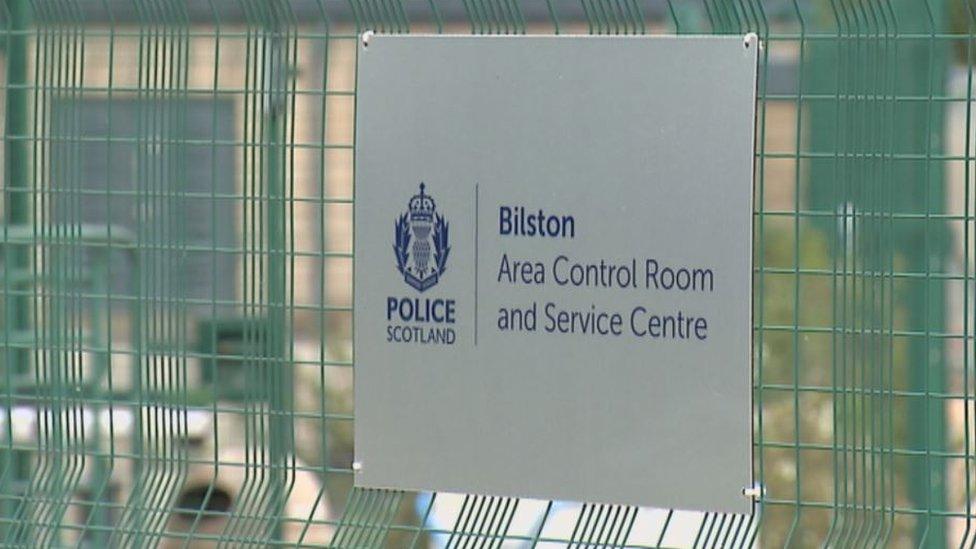
Mr Penman said staffing levels at Bilston Glen - where the call regarding the M9 crash was received - were insufficient
The HM Inspectorate of Constabulary report, which concentrates on police call-handling more generally, found examples of call handlers being under pressure to end calls quickly and grading of calls being dependent on resources available.
Mr Penman said staffing levels at Bilston Glen - where the call regarding the M9 crash was received - were insufficient and had resulted in poor call-handling performance, although the force had made "considerable efforts to address this".
The report also said:
There were insufficient members of staff in place when work transferred to other locations following the closure of police control-rooms in Stirling and Glenrothes, leading to "low levels of performance"
Some staff were under "unacceptably high levels of pressure" during critical stages of the changeover
While the current computer systems are generally fit for purpose and offer basic functionality, their stability remain in question while network performance continued to affect day-to-day operations.
Read our guide to 10 things we have learned about police call-handling from the report.
The report offered assurances on areas including staffing levels, the effective handling of emergency and high priority calls, and training arrangements for new staff.
Its recommendations included a review of the use of ad hoc "scribble pads" by service advisors and to "provide definitive guidance on their use, issue and proportionate supervision".
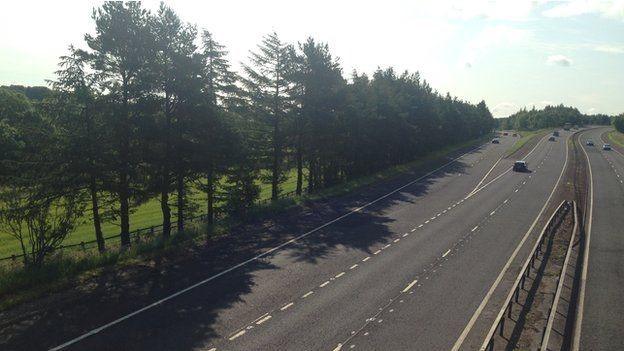
The car was found off the M9 motorway on the outskirts of Stirling
Scribble pads are used by some staff to note information rather than inputting it directly into the computer system.
Mr Penman said there were "a number of weaknesses" in Police Scotland's approach to the roll-out of its new national call handling system.
"This model is a critical element in the delivery of frontline policing and a key part of the bringing together of Police Scotland post reform," he said.
"The oversight of this project has been inadequate with key risks and other issues not being identified or highlighted to senior managers.
"There was an initial focus on meeting deadlines and increased productivity rather than a well-managed project with a focus on customer service, good staff relations and thorough process design."
'Strong assurances'
Mr Penman also said that Police Scotland should focus on stabilising the existing call-handling arrangements before making any further changes.
Plans to close control rooms in Aberdeen and Inverness have already been postponed and Mr Penman said that should not change in the near future.
Speaking in the Scottish Parliament, the justice secretary said independent experts would be brought in to provide strong assurances before any decision was considered regarding the implementation of proposed changes to Aberdeen, Dundee and Inverness control centres.

What were the control room reforms?
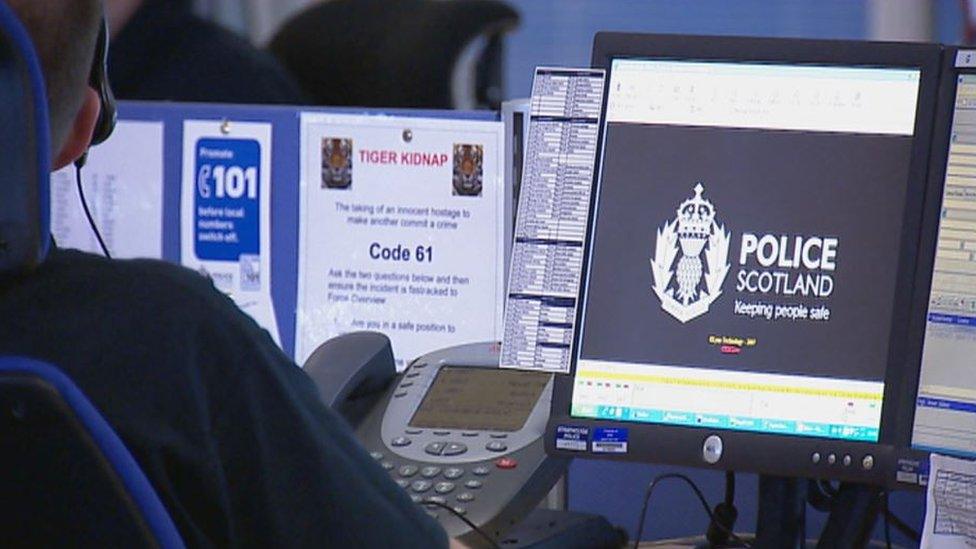
In January 2014, Police Scotland announced proposals to cut the number of police control rooms, retaining five of its 11 sites.
Dumfries was first to close, followed by Stirling, Glenrothes, and Pitt Street in Glasgow in March 2015.
Aberdeen, which has two control rooms was scheduled for the end of this year.
The reform plan saw Motherwell and Govan becoming a West Area Control centre, Bilston Glen near Edinburgh given responsibility for the East Command Area and Dundee the North Area Command.
Inverness was to lose its police control room but would instead become the new hub for the command and control of major incidents and national events anywhere in the country.
Following the interim HMICS report in September, plans to close Aberdeen and Inverness were put on hold.

Mr Matheson said that, in future, "any dip in performance such as experienced in Bilston Glen earlier this year will become quickly apparent and will trigger rapid intervention".
He also said unannounced visits would be made to call centres which would begin with immediate effect and would be ongoing until the restructure was complete.
"The report also includes some hard messages for Police Scotland and I have been assured that all 30 of the recommendations will be accepted and actioned by them," he said.
"It is my strong conviction that investment in staff is as important if not more important than investment in systems."
'Highly complex'
Police Scotland's Deputy Chief Constable Rose Fitzpatrick said the force would be implementing the recommendations of the report "through a detailed and comprehensive action plan".
She said maintaining the eight previous systems had not been a "viable option" and that the changes required had been "highly complex".
"We acknowledge there have been challenges. Today's report recognises that we have already made progress in addressing these issues to ensure we can further strengthen call handling."
Brian Docherty, chairman of the Scottish Police Federation, which represents police officers, said: "We have consistently stated that the drive to save money was resulting in an erosion of service and creating intolerable pressures on those working within it.
"We have also stated that there is little point answering calls quickly if there are no police officers available to respond to them.
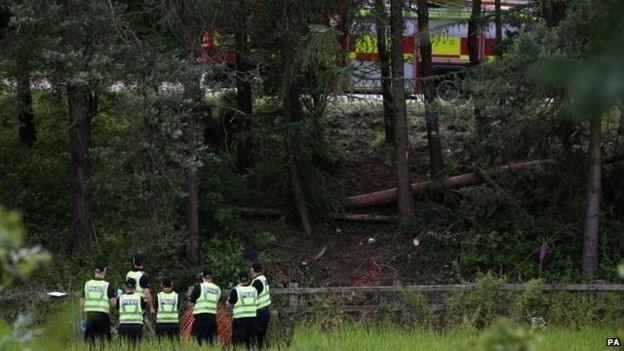
The car had gone down an embankment off the M9
"This report leaves no doubt that this was indeed the case and that our concerns were fully justified."
The HMICS report is the first of two reports into the incident.
The Police Investigations Review Commissioner (Pirc) is investigating the incident itself while the HMICS review examined the broader issue of call-handling.
Chief Constable Sir Stephen House, who will stand down next month, admitted the information received about the M9 crash near Stirling on Sunday 5 July in the initial call had not been entered into police systems.
- Published3 September 2015

- Published1 September 2015
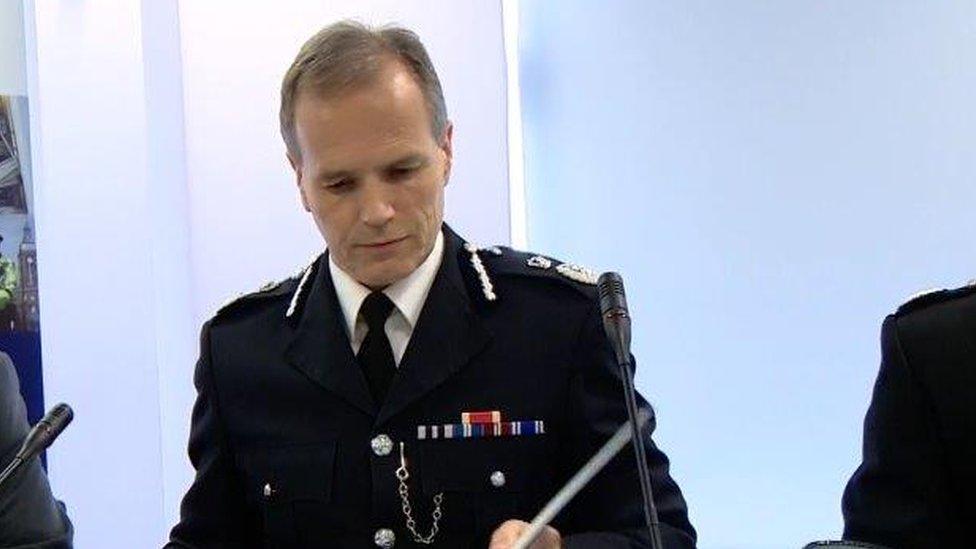
- Published13 July 2015

- Published10 July 2015
